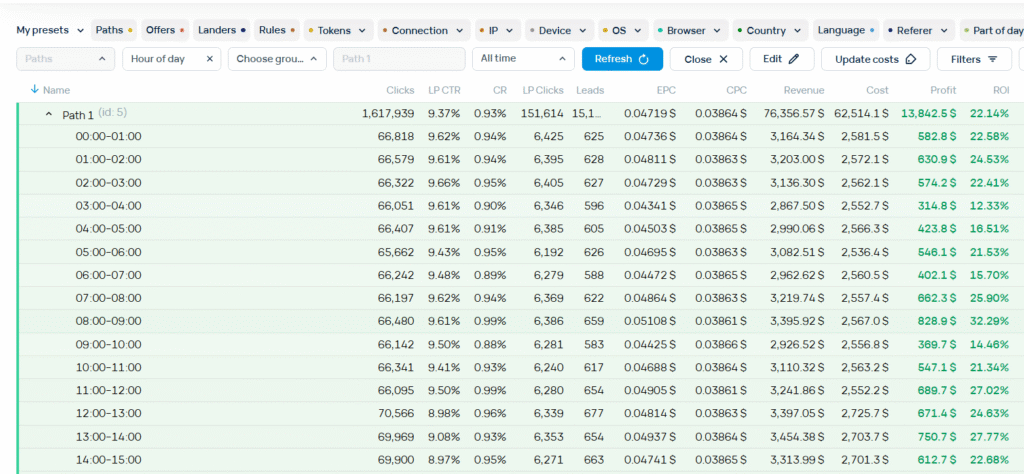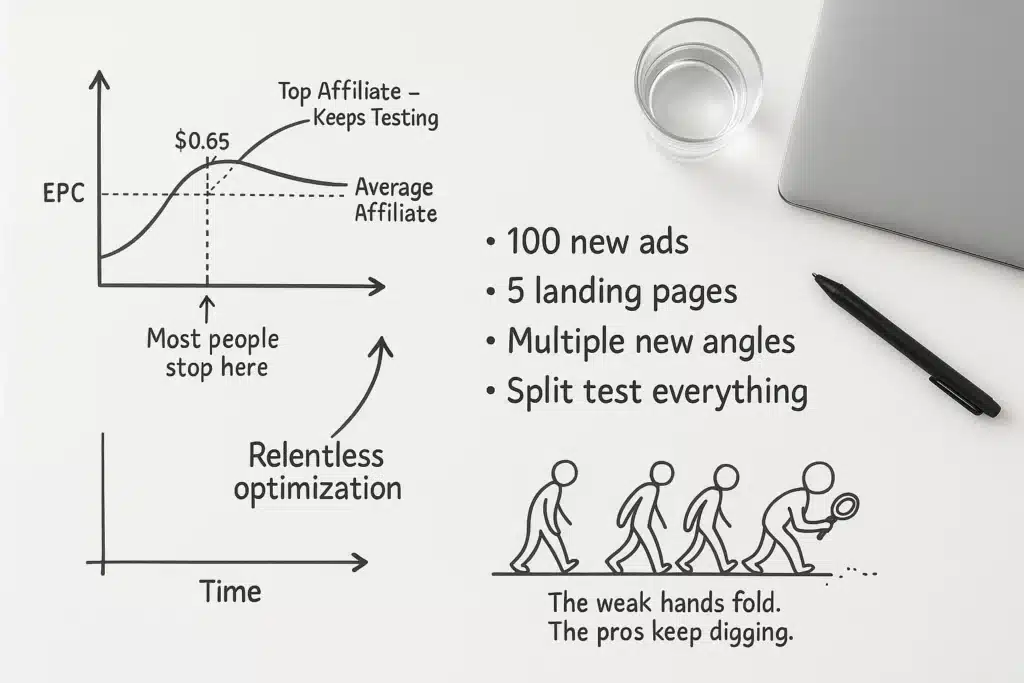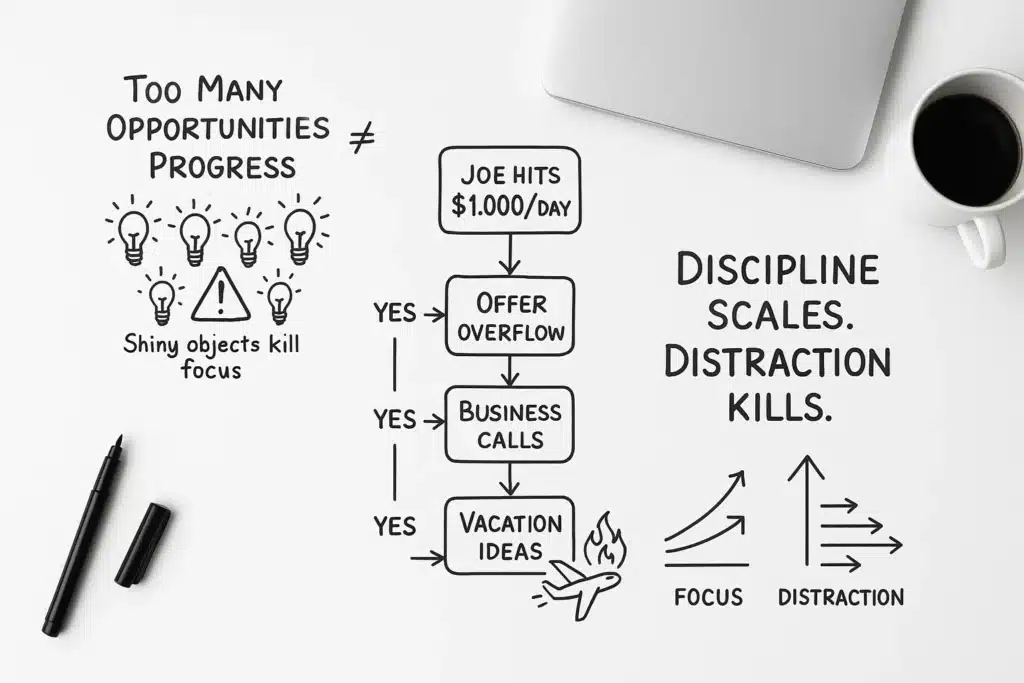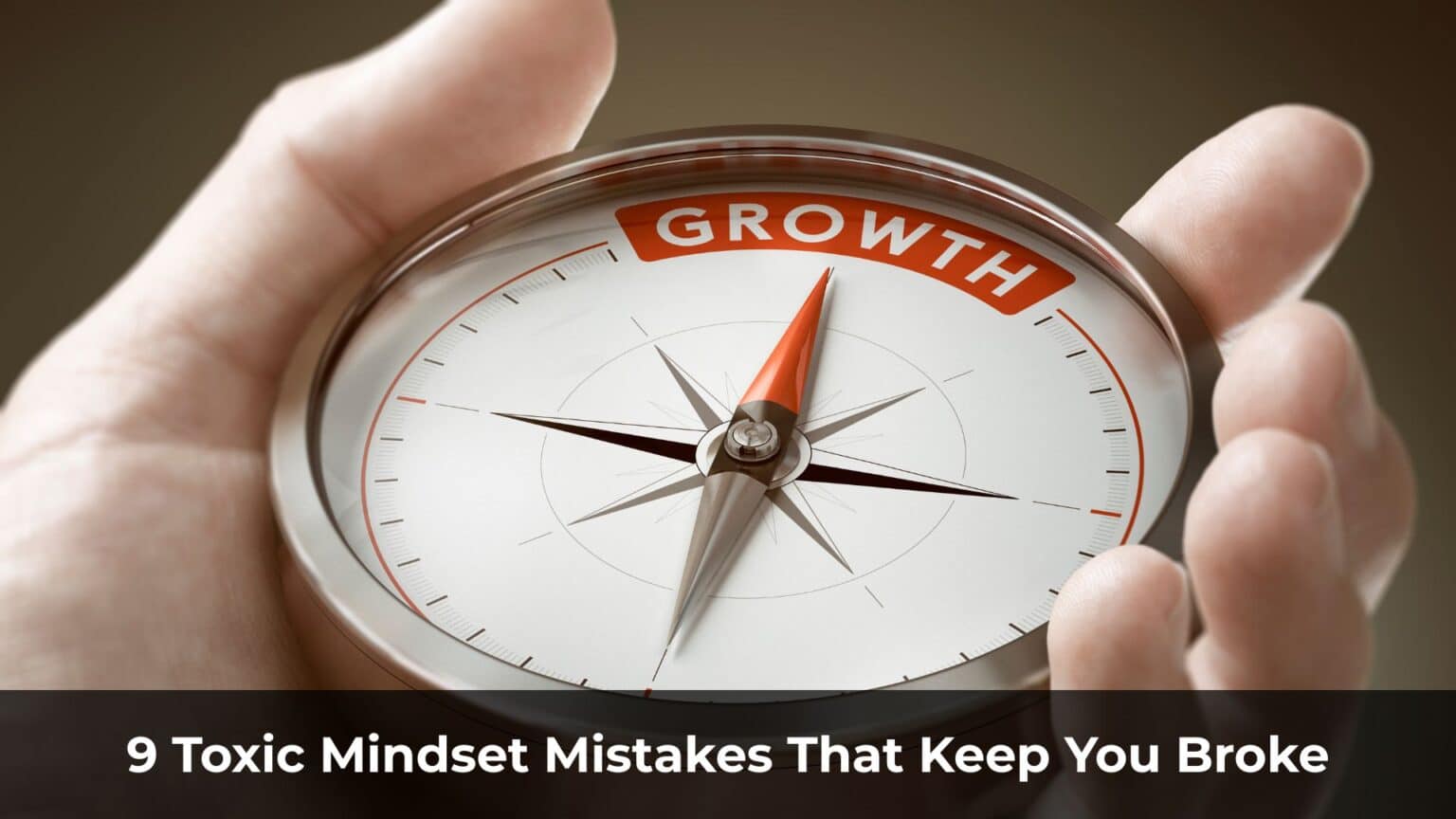“Excellence is not an act, but a habit.” – Aristotle
What separates an average affiliate from a top-performing one?
Over the years, I’ve seen many people rise fast in affiliate marketing—only to disappear just as quickly. Some campaigns took off, some even made headlines… but then, nothing.
There’s one factor that often gets overlooked: mindset and daily habits.
After observing some of the most consistent top affiliates in the industry—friends, mentors, and colleagues—I began to notice patterns. I made a list. I tracked what they did differently. And eventually, I narrowed it down to the 7 habits that show up again and again.
If you’re serious about growing in this space, these habits are worth paying attention to.
Table of Contents
ToggleStart With a Real Plan
Treat affiliate marketing like a real business—because it is.
Too many people jump in without a clear direction. No goals. No structure. Just chasing trends, reacting to problems, and hoping something works. It’s like a headless chicken approach… and it doesn’t end well.
Take a step back and ask yourself:
- Where do you want to be in 3 years?
- Are you still doing affiliate marketing—or have you moved on?
- What trends are emerging, and which ones can you realistically take advantage of?
Zoom in further:
- What does your next campaign look like?
- What metrics will you use to evaluate success?
- Is this a one-time test or a long-term rotating campaign?
As the saying goes: Failing to plan is planning to fail.

Collaborate Often. Learn From Others.
I’ve been in this industry for years—and I still learn something new every single day. There’s always a new strategy, a new tool, or a fresh perspective waiting to be discovered.
Some of my best insights came from other people.
One friend is a brilliant developer. Another runs successful mobile ad campaigns. Others create their own products and launch them from scratch. They’re experts in areas I’m not—and the lessons I’ve picked up from them are things I never would’ve learned on my own.
But here’s the key: sharing goes both ways.
If you want others to open up and share what they know, you have to bring value to the table too. No one likes someone who only takes but never gives.
That’s why I write, share, and help others whenever I can. I believe in playing the long game. Helping someone else doesn’t take anything away from me. There’s enough room for everyone who’s truly putting in the work.

Improve Every Area of Your Life
One thing I’ve noticed about successful affiliates: they don’t just grow their business—they grow themselves.
Most of the top performers I know read constantly, work out regularly, travel often, and genuinely invest in their personal development. They don’t treat success as just a number in a bank account.
Because what’s the point of becoming a millionaire if you’re a slave to money?
Work hard, yes—but not at the cost of your health, relationships, or peace of mind. Build a life that’s balanced and meaningful.
Personal growth fuels business growth.
The more you push yourself beyond your comfort zone, the more capable—and confident—you become. And that confidence starts compounding. You take bolder steps. You solve bigger problems. You build better systems.
Over time, your mindset around personal growth naturally spills into how you approach work—and that’s when your business starts leveling up too.
Always Keep an Eye on the Competition
Affiliate marketing moves fast. What’s working today might stop working tomorrow.
You might be running a profitable offer… then overnight, performance drops. Why?
Sometimes, it’s not the offer. It’s the competition.
Maybe another affiliate optimized their funnel, improved their creatives, and suddenly they’re getting 20% better ROI. That means they can afford to outbid you—and now your campaign is struggling to keep up.
This is why competitive awareness matters.
Samsung watches Apple.
Coke watches Pepsi.
Smart marketers watch what others are doing—not to copy, but to stay sharp.
Some affiliates get stuck in their own system, thinking what worked last month will keep working. Meanwhile, others are quietly evolving—and pulling ahead.
Stay curious. Stay alert.

Know Your Numbers. Know Your Limits.
You can’t make smart decisions if you don’t know your numbers.
Surprisingly, many affiliates don’t track their profit daily. They rely on whatever data the tracking tool shows—and that’s it.
But if you want to grow sustainably, you need to know exactly where you stand.
- How much did you actually spend today?
- What’s your real profit after all expenses?
- Which campaigns are bleeding money—and why?
Don’t wait until it hurts. Spot the losses early, and adjust fast.
Even with payments:
If you received multiple payouts this week, do you know which networks paid on time? Which ones are consistently delayed?
Zoom into campaign-level data:
- What day of the week brings the highest ROI?
- What time of day performs best?
- Can you double down on those windows?
The more accurately you know your numbers—and your limits—the smarter your moves become.

Keep Testing—Even When It’s Working
This is what separates a decent affiliate from a top-tier one.
Let’s say two affiliates both test aggressively and manage to reach a $0.50 EPC (earnings per click). At this point, the average affiliate takes a break—or moves on to another offer.
That’s when performance starts to slip.
Too many impressions lead to banner blindness. Offer payouts get reduced. Competitors start bidding higher with better landing pages. Within weeks, that $0.50 EPC drops to $0.25.
The average affiliate gives up:
“Well, that campaign’s dead. Time to find something new.”
But the pro doesn’t stop at $0.50. For them, that’s just the beginning.
They know every campaign has flaws, and those flaws are opportunities. So they keep pushing:
- 100 new ads.
- 5 new landing pages.
- Multiple new angles.
Even as competition rises and payout drops, they find ways to optimize. Their EPC doesn’t fall—it climbs.
A few weeks later, the competitors drop off. The weak hands fold. And now the pro is sitting at $0.65 EPC—on the same offer.
The difference? Relentless testing.

Learn to Say No—Even to “Good” Opportunities
Here’s a personal truth: I always have too many good ideas.
The real challenge isn’t finding the next big thing—it’s choosing not to chase every shiny opportunity. Time, energy, and focus are limited. If you try to do everything, you end up doing nothing well.
Let me give you an example.
Joe is a new affiliate who just hit $1,000 a day in profit. He’s pumped. His affiliate manager starts sending him new offers to test—ones he knows nothing about.
Business partners want to collaborate.
His girlfriend wants to celebrate, take trips, go all in.
He says yes to everything.
Within weeks, the campaign dies. The momentum’s gone. Joe’s overwhelmed and discouraged.
Looking back, he realizes the mistake:
He should’ve doubled down.
Refined what was already working.
Scaled from $1,000/day to $2,000/day—with discipline and focus.
Saying no is hard. But it’s often the smartest move you can make.
Final Thoughts
Strike while the iron is hot.
When things are working—double down. Don’t get distracted by every new idea, offer, or opportunity that shows up.
If you’re still learning, it might feel uncomfortable to say no. So don’t think of it as turning something down—think of it as saying yes to something better. Focus is a skill. And the better you get at it, the faster you’ll grow.
Success in affiliate marketing rarely comes from doing more.
It comes from doing what works—and doing it better than anyone else.
Stay sharp. Stay focused. Stay in the game.
Wishing you all the best on your journey.













